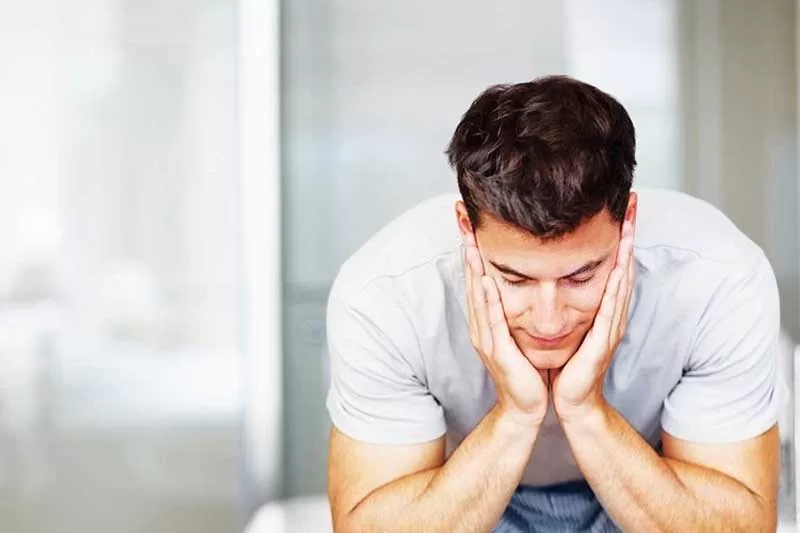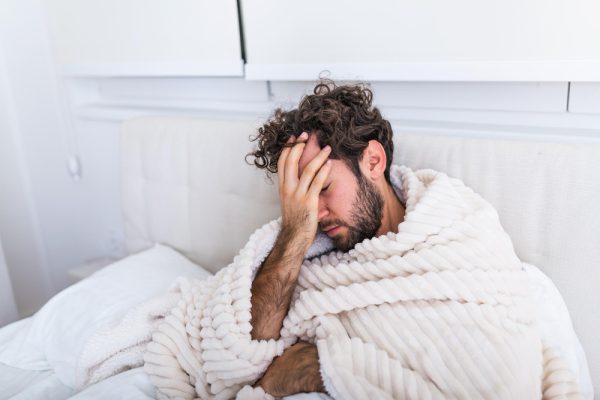Testosterone, known primarily as the male sex hormone, significantly impacts not only physical attributes but also mental and emotional well-being. The intricate relationship between low testosterone levels and mood disorders, particularly depression in aging men, has become a focal point of medical and psychological research. This discussion aims to unravel the complexities of this connection, highlighting the physiological basis, consequences of altered testosterone levels in elderly men, and the potential of testosterone replacement therapy (TRT).
The Physiology of Testosterone
Testosterone production peaks in early adulthood and begins a gradual decline around age 30, a natural part of aging known as “late-onset hypogonadism” or “andropause.” Unlike the abrupt hormonal changes of menopause in women, the reduction in testosterone levels in men is gradual and varies among individuals. Testosterone’s roles extend beyond muscle and bone maintenance to include significant influences on mood, cognition, and emotional regulation.
Testosterone and Depression: The Connection
Research indicates a correlation between low testosterone levels and the onset of depressive symptoms in older men, potentially due to testosterone’s role in the central nervous system. It influences the production and function of neurotransmitters like serotonin and dopamine, crucial for mood regulation. Declines in testosterone might disrupt these pathways, leading to mood disturbances. Additionally, physical effects of low testosterone, such as decreased muscle mass and energy levels, can negatively impact self-esteem and quality of life, contributing to depression.
Observational Studies and Clinical Trials
Observational studies have consistently found lower testosterone levels in men with depression compared to those without. However, the cause-and-effect relationship remains unclear. Clinical trials involving TRT have shown promising results in improving mood and energy levels among participants with low testosterone. Yet, these findings necessitate cautious interpretation, as TRT may not benefit all men with depression and carries potential risks, including cardiovascular concerns.
The Complex Interplay
The relationship between testosterone and depression is influenced by various factors like age, health status, and hormonal fluctuations. Aging brings numerous changes that can contribute to depressive symptoms independently of testosterone levels. Thus, while testosterone plays a role in mood regulation, it is only one piece of the larger mental health puzzle in older men.
Future Directions
Further research is essential to clarify the link between testosterone levels and depression in aging men. Longitudinal studies could help determine causality and identify which men might benefit most from TRT. Exploring alternative treatments, such as lifestyle changes and psychological interventions, is also vital for comprehensive care.
In Closing
Understanding the connection between testosterone levels and depression in aging men requires a nuanced approach to diagnosis and treatment. TRT offers potential relief for some men, but decisions should consider individual health profiles and potential therapy risks. An integrated approach, combining medical, psychological, and personalized treatment plans, is crucial for addressing the complex needs of aging men dealing with testosterone decline and depression.
Peak Male Institute now offers Telemedicine Appointments along with progressive and highly effective treatment options. Contact our medical specialists today to see what programs are available to get you started on a remote option treatment plan and begin Transforming Your Life today.
Call: (941) 759-5955 or Email us to get started.
References:
- Bagatell CJ, Bremner WJ: Androgens in men—uses and abuses. New Engl J Med 1996; 334:707–714
- Rubinow DR, Schmidt PJ: Androgens, brain, and behavior. Am J Psychiatry 1996; 153:974–984
- Weinbauer GF, Gromoll J, Simoni M, et al: Physiology of testicular function, in Andrology: Male Reproductive Health and Dysfunction. Berlin, Germany, Springer-Verlag, 1997, pp 25–60
- Morales AJ, Nolan JJ, Nelson JC, et al: Effects of replacement dose of dehydroepiandrosterone in men and women of advancing age. J Clin Endocrinol Metab 1994; 78:1360–1367
- Gray A, Berlin JA, McKinlay JB, et al: An examination of research design effects on the association of testosterone and male aging: results of a meta-analysis. J Clin Epidemiol 1991; 7:671–684
- Morley JE, Perry HM, Kaiser FE, et al: Effects of testosterone replacement in old hypogonadal males: a preliminary study. J Am Geriatr Soc 1993; 41:149–152
- McEwen BS: Gonadal and adrenal steroids and the brain: implications for depression, in Hormones and Depression. New York, Raven, 1987, pp 239–253
- Anderson RA, Bancroft J, Wu FCW: The effects of exogenous testosterone on sexuality and mood of normal men. J Clin Endocrinol Metab 1992; 75:1503–1507
- Schiavi RC, White D, Mandeli J, et al: Effect of testosterone administration on sexual behavior and mood in men with erectile dysfunction. Arch Sex Behav 1997; 26:231–241
- Wang C, Alexander G, Berman N, et al: Testosterone replacement therapy improves mood in hypogonadal men: a clinical research center study. J Clin Endocrinol Metab 1996; 81:3578–3583




